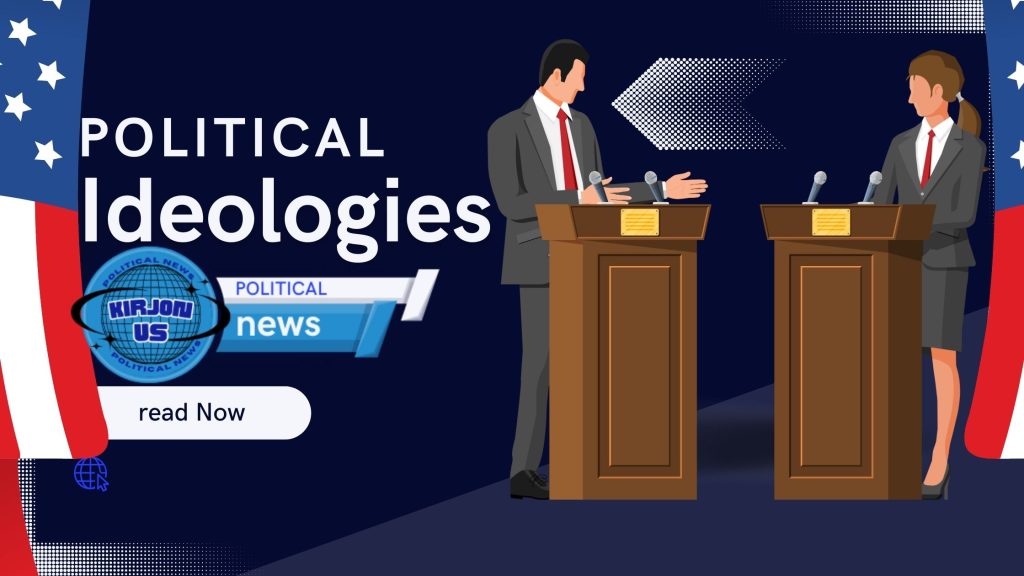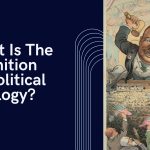Politics in the United States is a multifaceted arena, influenced by a variety of beliefs, values, and principles. At the core of this complexity lie political ideologies, which serve as guiding frameworks shaping the thoughts and actions of individuals, groups, and entire political movements. Understanding these ideologies is paramount to deciphering the dynamics of American politics and comprehending the motivations behind policy decisions and societal debates.
Political ideologies are not mere abstract concepts but rather powerful forces that drive political discourse and decision-making. They represent comprehensive sets of beliefs about the ideal organization of society, the role of government, and the distribution of power and resources. In the United States, where diversity is celebrated and dissent is a hallmark of democracy, a range of political ideologies coexists, each with its own historical roots, core principles, and policy implications.
In this article, we embark on a journey through the landscape of political ideologies in the United States, exploring the major schools of thought that shape American politics. From liberalism to conservatism, libertarianism to socialism, and even communism, we will delve into the origins, principles, and contemporary relevance of these ideologies. By shedding light on the intricacies of political thought, we aim to provide readers with a deeper understanding of the ideological underpinnings that drive American democracy and governance. Join us as we navigate through the intricate tapestry of political beliefs that define the United States’ vibrant political landscape.
Major Political Ideologies in the United States
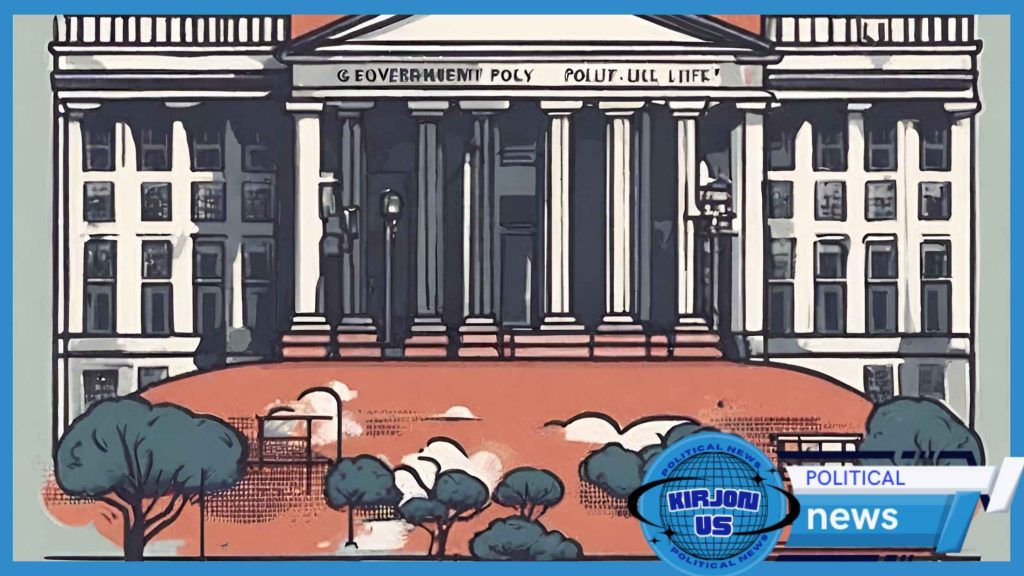
In the United States, a diverse array of political ideologies shapes the discourse and direction of governance. From the progressive ideals of liberalism to the traditional values of conservatism, each ideology offers distinct perspectives on the role of government, individual rights, and societal organization. Understanding these ideologies is essential for grasping the nuances of American politics and the competing visions for the nation’s future.
Liberalism
Liberalism, rooted in Enlightenment philosophy, champions individual freedom, equality, and the protection of civil liberties. In the United States, liberalism has historically advocated for policies such as social welfare programs, affirmative action, and expansive civil rights protections. Central to liberal ideology is the belief in the power of government to address social inequalities and promote the common good through interventionist policies.
Foundation and Core Principles
Liberalism traces its origins to thinkers like John Locke and John Stuart Mill, who emphasized the inherent rights and dignity of individuals. Core principles of liberalism include the protection of personal freedoms, such as freedom of speech, religion, and assembly, as well as the pursuit of social justice through government action. In the United States, liberal ideology has played a pivotal role in shaping progressive reforms, including the New Deal programs of the 1930s and the Civil Rights Movement of the 1960s.
Conservatism
Conservatism, in contrast to liberalism, emphasizes traditional values, limited government intervention, and free-market principles. It advocates for the preservation of societal institutions, such as family, religion, and private enterprise, and opposes radical social change. In the United States, conservatism has been associated with the Republican Party and has exerted a significant influence on policies related to taxation, regulation, and national defense.
Origins and Key Tenets
The roots of American conservatism can be traced back to thinkers like Edmund Burke, who defended established social order and gradual reform. Key tenets of conservatism include respect for tradition, skepticism of government intervention, and a preference for individual responsibility over collective solutions. Conservative ideology has informed policies ranging from tax cuts and deregulation to the promotion of traditional values in education and healthcare.
Libertarianism
Libertarianism advocates for maximum individual freedom and minimal government interference in both social and economic affairs. It rejects the notion of a paternalistic state and prioritizes individual rights, free markets, and voluntary association. While less prominent than liberalism and conservatism in mainstream politics, libertarianism has gained traction in debates over issues such as drug legalization, gun rights, and privacy rights.
Principles and Advocacy
Central to libertarian ideology is the principle of self-ownership, which asserts that individuals have the right to live their lives as they see fit, as long as they do not infringe on the rights of others. Libertarians advocate for limited government, arguing that state intervention often leads to unintended consequences and violates individual liberties. In the United States, libertarianism is associated with movements such as the Tea Party and has influenced policies promoting deregulation, privatization, and criminal justice reform.
Liberalism: Foundation and Core Principles
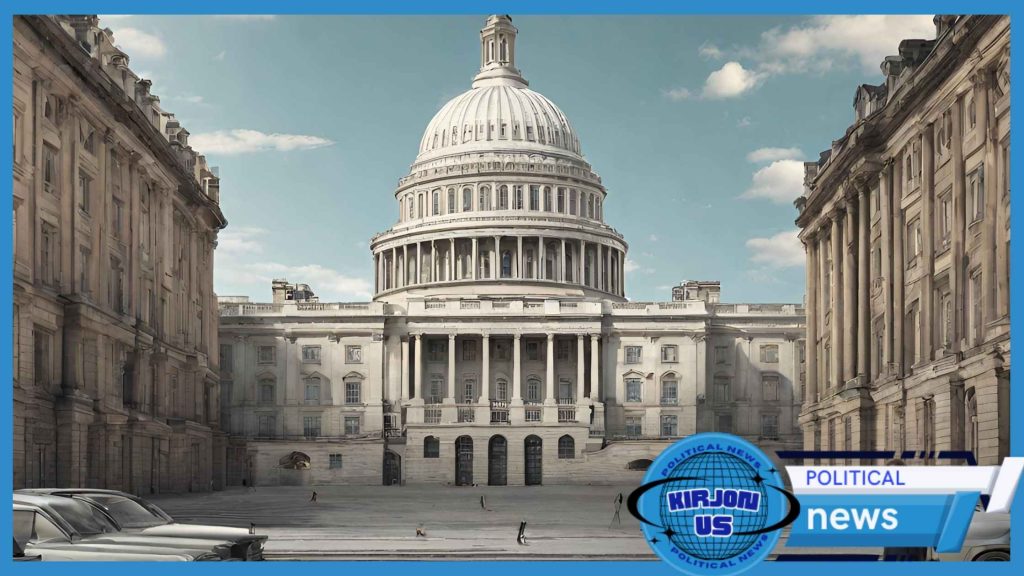
Liberalism, as a political ideology, stands on the pillars of individual rights, democracy, and the pursuit of social justice. Its roots can be traced back to the Enlightenment era, where thinkers like John Locke and John Stuart Mill laid the groundwork for its principles. In the context of the United States, liberalism has played a significant role in shaping progressive policies and advocating for the expansion of civil liberties.
Origins of Liberalism
The origins of liberalism can be found in the intellectual ferment of the 17th and 18th centuries, marked by a rejection of authoritarianism and a renewed emphasis on reason, individualism, and human rights. Philosophers such as John Locke championed the idea of natural rights, asserting that individuals possess inherent liberties that cannot be arbitrarily infringed upon by governments or other authorities. This notion laid the groundwork for the liberal belief in the protection of individual freedoms as a cornerstone of a just society.
Core Principles of Liberalism
At the heart of liberalism lie several core principles that guide its philosophy and policy prescriptions:
1. Protection of Personal Freedoms
Liberalism prioritizes the safeguarding of personal freedoms, including freedom of speech, religion, assembly, and the press. These rights are seen as essential for fostering individual autonomy and preventing the concentration of power in the hands of the state or other institutions. Liberalism advocates for robust legal protections to ensure that individuals can express themselves freely without fear of censorship or persecution.
2. Rule of Law and Equality under the Law
Central to liberal ideology is the principle of the rule of law, which holds that all individuals, regardless of their social status or political power, are subject to the same legal standards. This principle emphasizes the importance of equality before the law and the impartial administration of justice. Liberals argue that a just society must be built on the foundation of equal rights and opportunities for all its members, irrespective of race, gender, or socioeconomic status.
3. Pursuit of Social Justice
Liberalism advocates for the pursuit of social justice through government action aimed at mitigating inequalities and ensuring the well-being of all citizens. This may involve policies such as progressive taxation, social welfare programs, and affirmative action initiatives designed to address historical injustices and promote greater equality of opportunity. Liberals believe that the state has a responsibility to intervene in the economy and society to correct market failures and promote the common good.
Modern-Day Liberal Policies in the United States
In contemporary American politics, liberalism finds expression in a range of policy proposals and advocacy efforts aimed at advancing progressive goals. From healthcare reform and environmental protection to LGBTQ rights and immigration reform, liberals continue to champion policies that seek to expand individual freedoms, protect marginalized communities, and create a more equitable society. While liberalism faces challenges and critiques from various quarters, its principles remain central to debates over the role of government and the future direction of American society.
Conservatism: Origins and Key Tenets
Conservatism, as a political ideology, is rooted in a reverence for tradition, a skepticism of rapid societal change, and a belief in limited government intervention. Originating as a response to the upheavals of the Enlightenment and the French Revolution, conservatism emphasizes the preservation of societal institutions and values that have stood the test of time. In the United States, conservatism has been a prominent force in shaping policies related to governance, economics, and social issues.
Historical Background of Conservatism
The emergence of conservatism as a distinct political philosophy can be traced to the late 18th and early 19th centuries, amid the tumultuous aftermath of the French Revolution. Conservative thinkers such as Edmund Burke, in his seminal work “Reflections on the Revolution in France,” articulated the principles of conservatism as a defense of established order and gradual reform. Burke argued against the radical restructuring of society and advocated for the preservation of traditional institutions, such as the monarchy and the Church, as bulwarks against chaos and tyranny.
Key Tenets of Conservatism
Conservatism encompasses a set of core tenets that inform its worldview and policy prescriptions:
1. Respect for Tradition and Custom
Central to conservative ideology is a deep respect for tradition, custom, and the accumulated wisdom of past generations. Conservatives view societal institutions, such as the family, religious institutions, and cultural norms, as essential pillars of stability and order. They argue that these institutions provide continuity and stability in an ever-changing world, serving as the foundation for a healthy and cohesive society.
2. Skepticism of Government Intervention
Conservatives are wary of excessive government intervention in both the economy and social affairs. They believe in the importance of limited government, fiscal responsibility, and free-market principles. Conservatives argue that government intervention often leads to unintended consequences, stifles individual initiative, and undermines personal freedom. Instead, they advocate for a smaller role for the state, emphasizing individual responsibility and voluntary cooperation within civil society.
3. Emphasis on Individual Liberty and Responsibility
While valuing individual liberty, conservatives also emphasize the importance of personal responsibility and self-reliance. They believe that individuals should take ownership of their own lives and decisions, rather than relying on government assistance or paternalistic policies. Conservatives argue that fostering a sense of personal responsibility leads to greater resilience, self-sufficiency, and moral character, thereby strengthening the fabric of society as a whole.
Influence of Conservatism in US Politics
In the United States, conservatism has exerted a significant influence on political discourse and policymaking, particularly within the Republican Party. From Ronald Reagan’s embrace of free-market economics and deregulation to George W. Bush’s emphasis on traditional values and national security, conservative principles have shaped the direction of governance and public policy. Despite challenges and internal divisions, conservatism remains a potent force in American politics, offering a distinct vision for the nation’s future grounded in tradition, liberty, and individual responsibility.
Libertarianism: Principles and Advocacy

Libertarianism, as a political ideology, champions maximum individual freedom and minimal government interference in both social and economic matters. Rooted in principles of self-ownership and voluntary association, libertarianism advocates for a society where individuals are free to live their lives as they see fit, as long as they do not infringe upon the rights of others. While less mainstream than liberalism and conservatism, libertarianism has gained prominence in debates over issues such as personal autonomy, civil liberties, and the role of government.
Principles of Libertarianism
Central to libertarian ideology are several core principles that underpin its philosophy and policy prescriptions:
1. Principle of Self-Ownership
At the heart of libertarianism lies the principle of self-ownership, which asserts that individuals have the inherent right to control their own bodies and lives. According to this principle, individuals are the rightful owners of themselves and have the freedom to make decisions about their own bodies, property, and actions without coercion or interference from external authorities.
2. Advocacy for Limited Government
Libertarians advocate for a minimal state that performs only essential functions, such as protecting individual rights and enforcing contracts. They argue that government intervention in the economy and personal affairs often leads to inefficiency, corruption, and the erosion of individual liberties. Libertarians emphasize the importance of reducing the size and scope of government, cutting unnecessary regulations, and lowering taxes to promote economic prosperity and personal freedom.
3. Emphasis on Individual Freedom and Voluntary Exchange
Libertarianism places a high value on individual freedom and voluntary exchange, both in economic transactions and social interactions. Libertarians believe that individuals should be free to engage in mutually beneficial exchanges without interference or coercion from government or other actors. They advocate for the protection of property rights and the rule of law to ensure that contracts are voluntarily entered into and upheld.
Advocacy for Civil Liberties and Personal Autonomy
Libertarians are strong advocates for civil liberties and personal autonomy, including freedoms of speech, expression, religion, and association. They argue that individuals should be free to express themselves, pursue their own goals, and live according to their own values without fear of censorship or persecution. Libertarians oppose government surveillance, censorship, and other forms of encroachment on individual rights, viewing them as threats to freedom and privacy.
Influence of Libertarianism in US Politics
While libertarianism remains a minority ideology in mainstream American politics, it has exerted influence on public discourse and policy debates, particularly on issues such as drug legalization, gun rights, and privacy rights. Libertarian-leaning politicians and activists have sought to advance libertarian principles through advocacy organizations, think tanks, and grassroots campaigns, challenging the status quo and promoting a vision of a more free and prosperous society based on individual liberty and limited government intervention.
Socialism: Ideals and Critiques

Socialism, as a political ideology, advocates for the collective ownership and democratic control of the means of production, distribution, and exchange. Rooted in principles of economic equality and social justice, socialism seeks to address inequalities inherent in capitalist systems by redistributing wealth and power more equitably among society’s members. While socialism has diverse interpretations and manifestations, it generally prioritizes the welfare of the community over individual profit and emphasizes cooperation, solidarity, and shared responsibility.
Basic Tenets of Socialism
Socialism encompasses a set of core tenets that inform its philosophy and policy prescriptions:
1. Collective Ownership and Control
At the heart of socialism lies the principle of collective ownership and control of key sectors of the economy, such as industry, agriculture, and finance. Socialists argue that private ownership of the means of production leads to exploitation and inequality, as wealth and power become concentrated in the hands of a few. Instead, they advocate for democratic ownership and management of productive resources, with decisions made collectively by workers and communities.
2. Economic Equality and Redistribution
Socialism seeks to reduce economic disparities and ensure a more equitable distribution of wealth and resources. Through progressive taxation, social welfare programs, and public services, socialists aim to provide all members of society with access to basic necessities such as healthcare, education, housing, and employment. By prioritizing the needs of the most vulnerable and marginalized, socialism aims to create a more just and inclusive society.
3. Social Solidarity and Cooperation
Socialism emphasizes the importance of solidarity and cooperation among members of society, rather than competition and individualism. Socialists argue that cooperation and mutual aid are essential for achieving common goals and addressing collective challenges such as poverty, inequality, and environmental degradation. They advocate for policies that promote community empowerment, worker participation, and democratic decision-making at all levels of society.
Critiques and Controversies Surrounding Socialism
Despite its ideals and aspirations, socialism has faced critiques and controversies from various quarters, both within and outside the United States:
1. Economic Inefficiency and Lack of Innovation
Critics of socialism argue that centralized planning and government control of the economy lead to inefficiency, stagnation, and lack of innovation. They contend that without market incentives and competition, socialist systems struggle to allocate resources efficiently, respond to consumer preferences, and adapt to changing economic conditions. As a result, socialist economies may experience shortages, surpluses, and bureaucratic inefficiencies that hinder economic growth and development.
2. Threats to Individual Freedom and Innovation
Critics also raise concerns about the potential threats to individual freedom and innovation posed by socialist regimes. They argue that excessive government intervention and regulation can stifle entrepreneurship, creativity, and individual initiative, leading to a loss of dynamism and vitality in the economy. Moreover, critics warn that centralized control of information and resources in socialist societies can create opportunities for abuse of power, censorship, and authoritarianism, undermining political freedoms and civil liberties.
3. Viability of Socialist Policies in Practice
Some skeptics question the feasibility and viability of implementing socialist policies in practice, particularly in large, complex societies like the United States. They argue that the costs of implementing expansive social welfare programs and redistributive policies may outweigh the benefits, leading to fiscal instability, increased government debt, and reduced economic competitiveness. Moreover, critics contend that socialist policies may create dependency on the state, disincentivize work and innovation, and undermine individual responsibility and initiative.
Despite these critiques and controversies, socialism continues to inspire political movements and social struggles around the world, offering an alternative vision of society based on principles of economic democracy, social justice, and human dignity. While the debate over the merits and drawbacks of socialism persists, its ideals and aspirations continue to shape political discourse and policy debates in the United States and beyond.
Communism: Theory and Practice
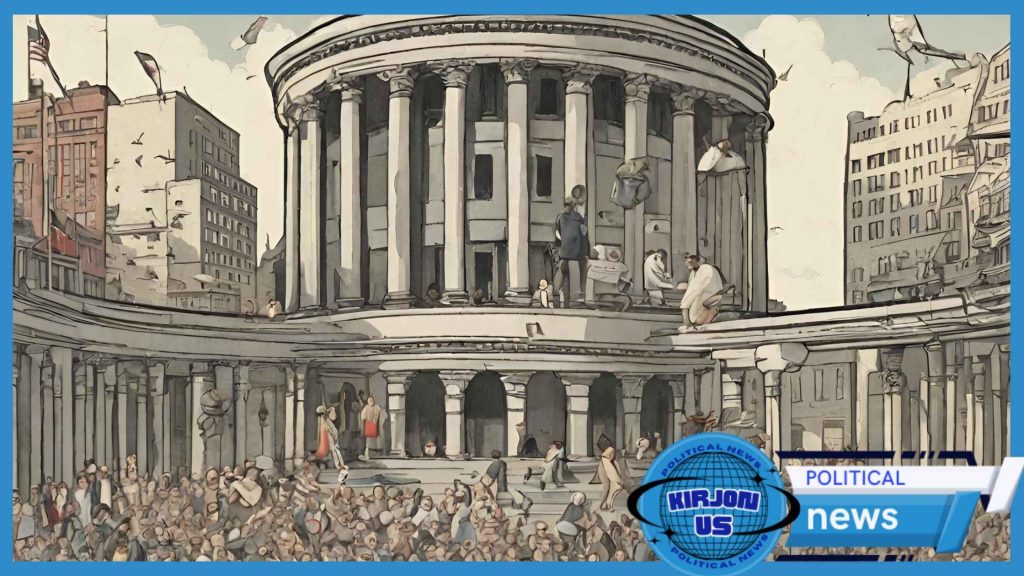
Communism, as a political ideology, advocates for the establishment of a classless, stateless society where the means of production are owned collectively and shared according to need. Rooted in the writings of Karl Marx and Friedrich Engels, communism aims to overcome the inequalities and exploitation inherent in capitalist systems by abolishing private property and promoting common ownership of resources. While communism has been implemented in various forms throughout history, its theoretical foundations and practical manifestations have sparked both admiration and criticism.
Communist Ideology and Its Origins
Communism traces its origins to the writings of Karl Marx and Friedrich Engels, who articulated the principles of communism in works such as “The Communist Manifesto” and “Das Kapital.” Marx and Engels critiqued capitalism as a system built on the exploitation of labor and the concentration of wealth in the hands of a capitalist class. They envisioned communism as the inevitable result of historical development, where the proletariat (working class) would overthrow the bourgeoisie (capitalist class) and establish a classless society based on common ownership of the means of production.
Theoretical Underpinnings of Communism
Communism is grounded in several key theoretical concepts that inform its ideology and vision for society:
1. Class Struggle and Historical Materialism
Central to Marxist theory is the concept of class struggle, which asserts that history is driven by conflicts between social classes with opposing interests. Marxists argue that capitalism creates inherent contradictions that lead to class conflict, eventually culminating in the overthrow of the capitalist system and the establishment of communism. Historical materialism, another foundational concept, posits that the development of society is determined by material conditions, such as the means of production and the mode of production.
2. Abolition of Private Property
Communism advocates for the abolition of private property and the establishment of common ownership of the means of production. Under communism, resources and productive assets are held collectively by society as a whole, rather than being owned and controlled by private individuals or corporations. This collective ownership is intended to eliminate exploitation and ensure that resources are distributed according to need, rather than based on profit motives.
3. From Each According to Ability, to Each According to Need
A central tenet of communism is the principle of “from each according to ability, to each according to need.” This principle emphasizes the idea of economic and social equality, where individuals contribute to society to the best of their abilities and receive goods and services according to their needs. Communists argue that this principle fosters solidarity, cooperation, and a sense of common purpose, leading to a more harmonious and equitable society.
Historical Instances of Communist Regimes
While communism has inspired political movements and revolutions around the world, its practical implementation has varied significantly in different historical contexts. Some of the most notable instances of communist regimes include:
1. Soviet Union
The Soviet Union, established in 1922 following the Russian Revolution, was the world’s first socialist state based on Marxist-Leninist principles. Under the leadership of Vladimir Lenin and later Joseph Stalin, the Soviet Union implemented policies of state ownership, central planning, and collectivization of agriculture. While the Soviet Union made significant strides in industrialization and social welfare, it also faced criticism for authoritarianism, human rights abuses, and economic inefficiency.
2. People’s Republic of China
The People’s Republic of China, founded in 1949 under the leadership of Mao Zedong and the Chinese Communist Party, embarked on a radical program of socialist transformation known as the Great Leap Forward and the Cultural Revolution. These initiatives aimed to rapidly industrialize and collectivize China’s economy, but they also led to widespread famine, political persecution, and social upheaval. In subsequent decades, China underwent significant economic reforms, transitioning towards a hybrid model of state capitalism while retaining single-party rule.
3. Cuba and Other Communist States
Cuba, led by Fidel Castro and the Cuban Communist Party, established a socialist state following the Cuban Revolution in 1959. Cuba implemented policies of nationalization, land reform, and social welfare, but it also faced economic challenges exacerbated by trade embargoes and isolation. Other countries that have experimented with communist systems include North Korea, Vietnam, and various Eastern European nations during the Cold War.
Perception and Reception of Communism in the US
In the United States, communism has often been viewed with suspicion and hostility, particularly during the Cold War era when it was portrayed as a totalitarian ideology opposed to American values of freedom and democracy. The Red Scare of the 1950s, characterized by anti-communist hysteria and McCarthyist witch hunts, led to the persecution of suspected communists and leftists in the United States. Despite this legacy of anti-communism, communism continues to have supporters and advocates in the United States who see it as a viable alternative to capitalism and a means of achieving social justice and equality.
Communism, with its emphasis on collective ownership, social equality, and the abolition of exploitation, remains a provocative and contested ideology that continues to shape political discourse and movements around the world. While its practical implementation has often fallen short of its lofty ideals, communism continues to inspire debates over the nature of capitalism, the role of the state, and the possibility of creating a more just and equitable society.
Impact of Political Ideologies on US Policies
Political ideologies play a significant role in shaping the policies and priorities of the United States government. From economic regulations to social programs, the influence of liberalism, conservatism, libertarianism, socialism, and other ideologies can be seen across a wide range of policy domains. Understanding the impact of these ideologies on US policies is essential for comprehending the dynamics of American governance and the divergent visions for the nation’s future.
Influence on Economic Policies
1. Liberalism
Liberalism advocates for government intervention in the economy to address market failures and promote social welfare. Liberal policies include progressive taxation, social safety nets, and regulations aimed at protecting consumers and workers. Initiatives such as the New Deal programs of the 1930s and the Affordable Care Act (Obamacare) reflect liberal principles of economic equity and social justice.
2. Conservatism
Conservatism favors limited government intervention in the economy and emphasizes free-market principles. Conservative policies prioritize deregulation, tax cuts, and privatization of public services. Initiatives such as the Tax Cuts and Jobs Act of 2017 and efforts to roll back environmental regulations reflect conservative ideals of individual freedom and economic efficiency.
3. Libertarianism
Libertarianism advocates for minimal government involvement in economic affairs and emphasizes individual freedom and free-market competition. Libertarian policies include reducing government spending, eliminating regulations, and privatizing government services. Proposals such as abolishing the income tax and ending government subsidies illustrate libertarian principles of limited government and personal autonomy.
4. Socialism
Socialism calls for extensive government intervention in the economy to promote economic equality and social justice. Socialist policies include progressive taxation, public ownership of key industries, and expansive social welfare programs. Initiatives such as Medicare for All and proposals for a Green New Deal reflect socialist ideals of collective responsibility and redistribution of wealth.
Impact on Social Issues
1. Liberalism
Liberalism advocates for social progress and equality under the law. Liberal policies include support for civil rights, LGBTQ+ rights, and reproductive rights. Initiatives such as the legalization of same-sex marriage and efforts to protect voting rights reflect liberal principles of individual liberty and social inclusion.
2. Conservatism
Conservatism emphasizes traditional values and moral order in society. Conservative policies often focus on issues such as law and order, immigration control, and family values. Initiatives such as stricter immigration enforcement and opposition to abortion rights reflect conservative ideals of social stability and cultural preservation.
3. Libertarianism
Libertarianism prioritizes individual autonomy and personal freedom in social matters. Libertarian policies include support for drug legalization, marriage equality, and criminal justice reform. Initiatives such as decriminalizing marijuana and reducing incarceration rates reflect libertarian principles of personal responsibility and limited government intrusion into personal lives.
4. Socialism
Socialism advocates for social justice and equality in all aspects of society. Socialist policies often address issues such as income inequality, healthcare access, and education affordability. Initiatives such as raising the minimum wage and expanding access to public education reflect socialist ideals of economic fairness and social solidarity.
Role in Foreign Affairs
1. Liberalism
Liberalism promotes international cooperation and diplomacy to address global challenges. Liberal foreign policies emphasize human rights, democracy promotion, and multilateralism. Initiatives such as international aid programs and participation in international organizations reflect liberal principles of global engagement and cooperation.
2. Conservatism
Conservatism prioritizes national sovereignty and security in foreign affairs. Conservative foreign policies often emphasize military strength, unilateral action, and a focus on national interests. Initiatives such as increased defense spending and withdrawal from international agreements reflect conservative ideals of American exceptionalism and self-reliance.
3. Libertarianism
Libertarianism advocates for non-interventionism and a focus on domestic priorities over foreign entanglements. Libertarian foreign policies emphasize avoiding military intervention, reducing foreign aid, and promoting free trade. Initiatives such as withdrawing troops from overseas conflicts and reducing foreign aid spending reflect libertarian principles of individual freedom and limited government involvement in international affairs.
4. Socialism
Socialism calls for solidarity and cooperation among nations to address global inequalities and injustices. Socialist foreign policies often prioritize international solidarity, disarmament, and conflict resolution. Initiatives such as supporting global climate agreements and advocating for debt relief for developing countries reflect socialist ideals of internationalism and mutual aid.
The impact of political ideologies on US policies is evident across a wide range of issues, from economic regulations to social programs to foreign affairs. While different ideologies offer divergent visions for the role of government and society, they all shape the direction of governance and policy-making in the United States, influencing the lives of millions of Americans and shaping the nation’s trajectory.
Current Political Landscape and Ideological Divides
The United States’ political landscape is marked by deep ideological divides and partisan polarization, shaping debates on key issues and influencing electoral outcomes. Understanding the current state of political ideologies is crucial for navigating the complexities of American governance and addressing the challenges facing the nation.
Polarization in American Politics
1. Partisan Gridlock
Political polarization has led to increased partisan gridlock and legislative dysfunction, making it difficult for policymakers to find consensus on pressing issues. Divisions between Democrats and Republicans have hindered efforts to pass comprehensive legislation on issues such as healthcare reform, immigration, and climate change.
2. Echo Chambers and Information Silos
The rise of social media and online news platforms has facilitated the creation of echo chambers and information silos, where individuals are exposed only to news and opinions that align with their preexisting beliefs. This phenomenon has contributed to the further entrenchment of ideological divides and the erosion of shared facts and values.
Effect of Political Ideologies on Voting Behavior
1. Ideological Sorting
Voters increasingly align themselves with political parties based on ideological identity, leading to greater ideological sorting within the electorate. This trend has resulted in more homogenous voting blocs and reduced crossover support for candidates and parties across the ideological spectrum.
2. Issue Polarization
Political ideologies influence voters’ priorities and policy preferences, contributing to issue polarization on a wide range of topics. Issues such as healthcare, gun control, and immigration have become deeply polarized along ideological lines, with Democrats and Republicans advocating for starkly different approaches and solutions.
Challenges in Bridging Ideological Divides
1. Identity Politics
Identity politics, which emphasizes the experiences and perspectives of specific demographic groups, has exacerbated ideological divides by framing political discourse in terms of group identity rather than shared values or interests. This focus on identity can lead to increased tribalism and hostility between different social and political groups.
2. Disinformation and Misinformation
The spread of disinformation and misinformation online has further polarized the political landscape by sowing distrust in institutions and undermining the credibility of factual information. False or misleading narratives propagated by partisan actors and foreign actors can exacerbate ideological divides and deepen societal divisions.
The Role of Leadership and Civic Engagement
1. Leadership
Political leaders have a crucial role to play in bridging ideological divides and fostering bipartisan cooperation. Leaders who prioritize dialogue, compromise, and mutual respect can help reduce polarization and promote constructive engagement on shared challenges.
2. Civic Engagement
Civic engagement and grassroots activism are essential for building coalitions across ideological lines and advocating for policies that benefit all Americans. By participating in political processes, engaging in civil discourse, and seeking common ground, citizens can contribute to bridging ideological divides and strengthening democratic institutions.
Prospects for Ideological Compromise and Cooperation
Despite the challenges posed by partisan polarization and ideological divisions, there remain opportunities for ideological compromise and cooperation in American politics. By emphasizing shared values, seeking common ground on key issues, and fostering a spirit of cooperation and civility, policymakers and citizens alike can work together to address the pressing challenges facing the nation and build a more inclusive and resilient democracy.
The Future of Political Ideologies in the United States
The future of political ideologies in the United States is shaped by a complex interplay of social, economic, and technological forces. As the nation grapples with demographic shifts, technological advancements, and global challenges, the trajectory of political ideologies is subject to ongoing evolution and adaptation. Understanding the potential pathways for the future of political ideologies is essential for anticipating shifts in governance, policy-making, and societal dynamics.
Evolving Demographics and Ideological Shifts
1. Changing Demographic Composition
Demographic changes, including increasing racial and ethnic diversity and generational turnover, are likely to influence the future of political ideologies. Younger generations, who tend to hold more progressive views on social and economic issues, may drive shifts towards liberalism and socialism, particularly on issues such as healthcare, climate change, and social justice.
2. Urban-Rural Divide
The urban-rural divide in political attitudes and values is expected to persist, with urban areas becoming more liberal and rural areas remaining conservative. This divide may exacerbate ideological polarization and hinder efforts to find common ground on key policy issues, such as healthcare, immigration, and gun control.
Technological Transformations and Ideological Discourse
1. Impact of Social Media and Digital Platforms
The proliferation of social media and digital platforms has transformed the landscape of political discourse, enabling the rapid dissemination of information and the amplification of ideological voices. The influence of social media on ideological polarization and echo chambers may continue to shape public opinion and electoral outcomes, contributing to the fragmentation of political ideologies.
2. Rise of New Ideological Movements
Technological advancements and digital connectivity have facilitated the emergence of new ideological movements and grassroots initiatives. Online communities and digital networks may provide fertile ground for alternative ideologies, such as techno-progressivism, transhumanism, and communitarianism, to gain traction and influence political discourse in novel ways.
Economic Trends and Ideological Responses
1. Economic Inequality and Redistribution
Persistently high levels of economic inequality may fuel support for socialist and progressive ideologies, as voters seek solutions to address disparities in wealth and opportunity. Calls for increased taxation on the wealthy, expanded social safety nets, and guaranteed basic income programs may gain momentum in response to growing concerns about economic insecurity and social mobility.
2. Technological Disruption and Job Displacement
The ongoing automation of labor and technological disruption may prompt reevaluations of traditional economic ideologies, such as capitalism and socialism. Debates over the future of work, universal basic income, and retraining programs may intensify as societies grapple with the implications of artificial intelligence, robotics, and other disruptive technologies on employment and income distribution.
Global Challenges and Ideological Responses
1. Climate Change and Environmentalism
The urgency of addressing climate change and environmental degradation is likely to shape the future of political ideologies, with increasing support for green policies and sustainability initiatives. Environmentalism may become a more prominent component of progressive and liberal ideologies, as voters demand bold action to mitigate the impacts of climate change and transition to renewable energy sources.
2. Globalization and Nationalism
The tension between globalization and nationalism may continue to influence the direction of political ideologies, with debates over trade, immigration, and sovereignty shaping ideological divides. Nationalist and populist movements may advocate for protectionist policies and stricter immigration controls, while globalist perspectives may prioritize international cooperation and multilateralism in addressing global challenges.
Conclusion: Navigating the Ideological Landscape
As the United States navigates the complexities of the 21st century, the future of political ideologies remains uncertain yet dynamic. Demographic shifts, technological transformations, economic trends, and global challenges will continue to shape the ideological landscape, presenting both opportunities and challenges for governance, policy-making, and civic engagement. By fostering dialogue, seeking common ground, and embracing innovation, policymakers and citizens can work together to navigate the evolving terrain of political ideologies and build a more inclusive, equitable, and resilient society for future generations.
Conclusion
The landscape of political ideologies in the United States is characterized by diversity, dynamism, and ideological polarization. From liberalism and conservatism to socialism and libertarianism, a multitude of ideologies shape debates, policies, and electoral outcomes, reflecting the diverse values, beliefs, and priorities of the American populace. As the nation grapples with complex challenges and transitions, including demographic shifts, technological advancements, and global crises, the future of political ideologies remains subject to ongoing evolution and adaptation.
Navigating the ideological landscape requires a commitment to dialogue, civility, and constructive engagement across partisan lines. By fostering mutual understanding, seeking common ground, and embracing pluralism, policymakers, leaders, and citizens can work together to address pressing issues, promote democratic values, and build a more inclusive and resilient society. Regardless of one’s ideological affiliation, the shared goal of advancing the common good and upholding the principles of democracy should serve as a guiding beacon for collective action and progress.
FAQs
1. How do political ideologies influence policymaking in the United States?
Political ideologies shape policymaking by influencing the priorities, values, and policy preferences of elected officials and policymakers. Liberalism, conservatism, socialism, and libertarianism, among other ideologies, inform debates on issues such as healthcare, taxation, immigration, and social welfare, shaping the direction of governance and policy outcomes.
2. What are the main sources of ideological polarization in American politics?
Ideological polarization in American politics stems from various factors, including partisan identity, cultural divides, media fragmentation, and economic disparities. Identity politics, echo chambers in social media, and the influence of special interest groups can exacerbate ideological divides and hinder efforts to find common ground on key policy issues.
3. How can citizens bridge ideological divides and promote constructive dialogue?
Citizens can bridge ideological divides by engaging in civil discourse, seeking out diverse perspectives, and finding common ground on shared values and goals. Actively participating in civic organizations, community initiatives, and political processes can help foster understanding, empathy, and cooperation across ideological lines.
4. What role does leadership play in addressing ideological polarization?
Political leadership plays a crucial role in addressing ideological polarization by promoting unity, bipartisanship, and dialogue. Leaders who prioritize collaboration, compromise, and mutual respect can help bridge divides, build consensus, and advance policies that benefit all Americans, regardless of ideological affiliation.
5. How can the United States navigate the challenges of the 21st century in the context of evolving political ideologies?
Navigating the challenges of the 21st century requires a forward-thinking approach that embraces innovation, inclusivity, and adaptability. By fostering a culture of resilience, problem-solving, and civic engagement, the United States can navigate the complexities of demographic shifts, technological transformations, and global crises while upholding democratic values and promoting the common good.

